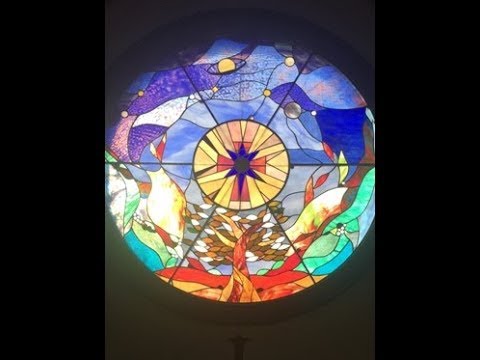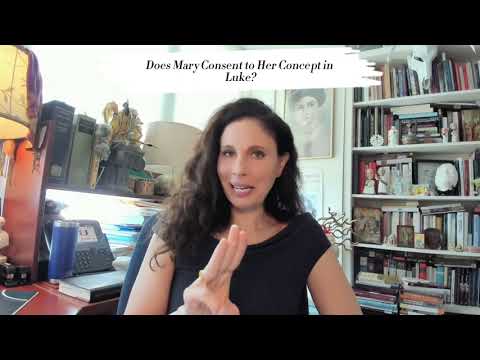Not for Law But for Love
https://youtu.be/pb3ygiBgaGU
“‘Dear Lord God, I wish to preach in your honor. I wish to speak about you, glorify you, praise your name. Although I can’t do this well of myself, I pray that you may make it good.’”[1]
Introduction
What, in our lives, brings God glory? I’ll say two things up front: 1. It’s not what you think; and, 2. It’s harder than you think.
Luke 13:10-17
Luke tells us that Jesus was teaching in one of the synagogues on the Sabbath (v10). Luke gives us a location that Jesus hasn’t been in a while—not since chapter 4, when he was teaching on the Sabbath about bringing “good news to the poor” and “release the captives.”[2] Therefore, given this new scene and its corresponding component parts, Luke is providing his audience a reminder about how Jesus spoke of and understood his mission from God: liberation of the people from oppression. (This is our backdrop.) Also, since he’s in the synagogue on the Sabbath, we can safely assume that another conflict will emerge between Jesus and the religious authorities[3] as human tradition and power is confronted by divine love and mercy. [4]
Luke then tells us, And, behold!, [there was] a woman having a spirit of frailty for 18 years—she was bent double and not able to lift toward the uttermost (v11). Another character is introduced: a woman who was bent over so severely she could not stand up straight for 18 years. She is “burdened” by a spirit that is causing her to suffer, she is doubled-over under the weight of its presence, she is oppressed by evil and the demonic and this evil spirit has refused her the vitality and dignity of divinely created human life.[5] She was minding her own business, going about her task, and was not seeking either attention or healing. However, Jesus saw her[6]—God of very God saw her and cared about her. Then, Now, after perceiving her, [he] called and said to her, “Woman, you have been released from your malady,” and he placed his hands on her, and instantly she was restored/straightened again and she as giving glory to/glorifying God (vv12-13). The healing Jesus brings to this humble and burdened woman is one of “release” and restoration: she is not only released from her malady of being doubled-over but also from the spirit causing the burden; she is also returned to community (Jesus calls her to him in the midst of the people).[7] In a word, Jesus rebukes the evil spirit by declaring she is no longer oppressed and follows it up with laying his hands on her. The word of God spoke, the hand of God touched, and she was liberated, loosed from/set free from her captivity (ἀπολύω). Jesus’s word and touch bring God glory because God’s praise is found on the lips of the one liberated.
But Jesus isn’t the only one who perceives and calls. Luke tells us that the ruler of the synagogue—being indignant because Jesus healed on the Sabbath—answered and was saying to the crowd, “There are six days on which to toil; therefore on these days come and be healed and not [on] the day of the Sabbath” (v14). The religious leader isn’t wrong, it is his job to faithfully keep and study the law[8] and he’s referring to scripture here (but not quoting it (Dt. 5:13)).[9] The Sabbath was a divinely instituted law of God, what “ought to be done” was rest and not work. Here Jesus finds himself confronted by the evil Spirit in the woman, and the evil spirit[10] deeply embedded in the atmosphere around him personified by the ruler of the synagogue: law has privilege over the people.[11] This ruler of the synagogue—privileging the law over the person thus participating in the evil embedded in the atmosphere[12] —would’ve added “another umpteen centuries” to this woman’s burden rather than “break” the law to release her. Jesus, however—privileging the person over the law and thus confronting the evil embedded in the atmosphere[13]—liberated and released her even on the Sabbath. Which action caused God to be praised?[14]
Not only is Jesus’s ministry being characterized as one of “release,”[15] the very laws of God, God’s word, God’s son, God’s mission in the world is also being so characterized by “release.”[16] Luke tells us that Jesus, the lord, answered and said [to the ruler of the synagogue and the crowd], “Hypocrite! Do not everyone of you releases their cow or donkey from the manger and after leading it away gives it water? But this woman—being a daughter of Abraham—Satan bound her ten and eight years, was it not necessary [for her] to be loosed from this imprisonment on the day of the Sabbath? (vv15-16). Luke emphasizes Jesus’s authority to challenge the authority of the ruler of the synagogue. Even though the ruler of the synagogue tried to challenge Jesus and reassert his authority,[17] Jesus returns the favor. He also quotes scripture, but highlights the hypocrisy in that, according to the text, not even animals are supposed to work, thus Dt. 5:14 goes ignored.[18] Here Jesus becomes the one who has the authority to both interpret the law and scripture and God’s will and purposes in the world and opts to break the law to liberate a daughter of Abraham.[19] Here the ruler and the crowd are exposed as the ones who do not know God’s will and who do not understand the law and it’s purpose.[20] Here Jesus responds to the ruler’s “ought to be done” with his own “ought to be done”: healing, release, restoration, liberation for all humanity,[21] especially those who are a [children] of Abraham. She not only has some place in the children of Israel, but has a significant place marked by being one of the people of God who has dignity and deserves to receive God’s mercy and liberation[22] and is given a voice to glorify God which is the characteristic of the people of God.[23]
Luke closes with telling us that not only did the woman praise God, but so did the people who witnessed the deed and the subsequent exchange.[24] Luke writes, and all the crowd was rejoicing because of all the glorious things that were happening through him (v17b).
Conclusion
So, again, I’ll ask the question: What, in our lives, brings God glory?
I mentioned earlier that it’s not what you think. By this I mean that it’s not by adhering to some austere and severe way of life, it’s not embedded in some form of self-harm/mutilation (either spiritually or materially), it’s not at the end of a pilgrimage or fast or bible-study/reading, it’s not the pot of gold at the end of being strong and powerful, it’s not in our success no matter how much we give God the credit, it’s not about perfect worship and excellent doctrine, and it’s not even by clinging to the law (either human or divine) and upholding it without fail. Why? Because none of those deeds puts God and our neighbor first, and it, frankly, devalues human life to the point of being unimportant and down-right disposable, only any good by ho it serves some law. In any of these actions, as good and holy as any of them sound, there is no room for God and for our neighbor.
I also mentioned, earlier, that it’s harder than you think. By this I mean that even though it’s not about the deeds mentioned above it doesn’t mean that we bring God glory by just going along with the crowd and adhering to the kingdom of humanity and its rules and structures without question. It’s also not as easy as just choosing to be nice and people pleasing. It’s hard because we must find our identity not only in Christ but also find ourselves empowered by the Holy Spirit to be as Christ in the world and this means, in many ways, participating in the mission of God as Jesus did. Thus, it’s hard because we must be curious; we must be willing to be the fodder for challenge; we must find our voice to ask questions—specifically against the powers that control the narratives and institutions of the kingdom of humanity; we must locate the gumption to call out lies and falsehoods knowing that it might/will cause our social, political, ecclesiastical, occupational, and (even) physical demise. We must allow our faith and love of God and others to determine our posture in the world, and we must do so daily and without foreknowledge. Why is it harder than you think? Because to bring God glory caused Jesus to lose his life.
So, what does bring God glory? Jesus forever sets the answer to the question for us: by making sure people are liberated from oppression (both spiritually and materially). This means, quite frankly, that we participate in the divine revolution of love, life, and liberation, being willing to break the law as necessary to make sure our neighbors—burdened by the evil of the age that weighs them down and prevents them from having fully life—are released from their captivity within the kingdom of humanity. As Christians who have been liberated by Jesus to love God, let us also love our neighbor in and through the love that God has loved us in Christ and by the power of the Holy Spirit, and let us bring life where there is death, and sweet divine release and liberation where there is captivity. Love releases and sets free; therefore, beloved, let us love as we have been so loved by God through Christ and the power of the Holy Spirit.
[1] LW 54:157-158; Table Talk 1590.
[2] Joel B. Green, The Gospel of Luke, The New International Commentary on the New Testament (Grand Rapids: Eerdmans, 1997), 520-521. “There, when teaching in a synagogue on the Sabbath, Jesus proclaimed ‘good news to the poor,’ ‘the good news of the kingdom of God’…Recalling that well-established script, we may assume that Luke has chosen at this fresh point of departure in the narrative to remind us of a the central concerns of Jesus’ ministry and, thus, to present Jesus engaged in the characteristic activity by means of which he fulfills his divine mission.”
[3] Justo L. Gonzalez, Luke, Belief: A Theological Commentary on the Bible, eds. Amy Plantinga Pauw and William C. Placher (Louisville: WJK, 2010), 173. “This well-known passage is a further sign of the growing controversy between Jesus and the religious Leaders of his nation.”
[4] Gonzalez, Luke, 173. “For in this text we have not just a miracle of healing, but the convergence of ancient and seemingly invincible powers, all coming to meet that Sabbath day in that synagogue.”
[5] Gonzalez, Luke, 173-174. “The point is that the woman cannot stand up straight, and that is demonic…With that woman there comes into the synagogue what we religious folk often try to forget: the reality of the power of evil, the reality of human suffering.”
[6] Green, Luke, 522.
[7] Green, Luke, 522-523. “When Jesus sees her, he does not go to her but calls her to him, thus inviting her to join him in front of those gathered and so to join him at the focal point of this scene. Locating this woman of such low status thus is not unrelated to the healing moment, but is directly relevant as a symbolization of her restoration within her community.”
[8] Green, Luke, 523. “The role of the synagogue ruler was to maintain the reading and faithful teaching of the law…”
[9] Green, Luke, 523. “He does not even cite the relevant texts, but grounds his view in what ‘ought to be done’—that is, in the divine will.” The woman can be healed tomorrow.
[10] Gonzalez, Luke, 174. “The confrontation points to the always lurking possibility that very good religious principles may be turned into allies of the powers of evil.”
[11] Gonzalez, Luke, 174. “On the one hand, in that woman’s suffering Satan himself confronts him. On the other, in the entire atmosphere around him, in the very law of Israel, in the leader of the synagogue, the weight of tradition seems to say that there is nothing to be done.”
[12] Gonzalez, Luke, 174. “The leader of the synagogue was defending religious principles derived from the very law of God. Yet in that very defense he was siding with the powers of evil that held the woman bent.”
[13] Green, Luke, 521. “From this ethnomedical perspective, the, this woman’s illness has a physiological expression but is rooted in a cosmological disorder. Because Luke has presented Jesus as the divine agent of salvation in whose ministry the kingdom of God is made present and in whose ministry the domain of Satan is rolled back, Luke’s depiction of this woman’s illness prepares us for a redemptive encounter of startling proportions.”
[14] Gonzalez, Luke, 174. “Jesus faces the bent-over woman, oppressed by the weight of Satan himself. To her oppression of eighteen years the religious leaders would add another of umpteen centuries: It is the Sabbath! It is a day for religious matters! Jesus saw the woman, and he called her, and he spoke to her, and he laid his hands on her, and immediately she stood up straight and began praising God.”
[15] Joel B. Green, The Gospel of Luke, The New International Commentary on the New Testament (Grand Rapids: Eerdmans, 1997), 518.
[16] Green, Luke, 519. “…Jesus’ encounter with this woman and his ensuing interpretation of her liberation as a necessary manifestation of the divine will, an outworking of the presence of the kingdom, on this day, the Sabbath. That is, the intrusion of the indignant synagogue ruler into Jesus’ encounter with the women bent over (v 14) provides Jesus the opportunity to interpret that healing as a fulfillment of God’s purpose ,and, thus, of Jesus’ mission (vv 15-21).”
[17] Green, Luke, 523. Ruler of the Synagogue addresses the people and not Jesus, “In this way he publicly challenges Jesus’ authority as a teacher and reasserts himself as the authorized interpreter of Scripture.”
[18] Green, Luke, 524. Ruler of Synagogue’s allusion to Deut 5:13 causes Jesus to return to that text “in order to remind this debate partner that the prohibition to work extends not only to human beings but also to oxen and donkeys (Deut 5:14).”
[19] Green, Luke, 520. “…Luke introduces Jesus as ‘Lord,’ then presents him as one with authority to interpret God’s salvific purpose. Directly or indirectly, both synagogue ruler and Jesus appeal to the Scriptures, but Jesus is represented as the divinely sanctioned hermeneut.”
[20] Green, Luke, 524. Setting up a series of parallels with ref. to Deut 5:14, “From this exegesis of the Deuteronomic law and contemporary practices based on it, Jesus is able to expose the ruler of the synagogue and those who think as he does as ‘hypocrites’—that is, as persons who do not understand God’s purpose, who therefore are unable to discern accurately the meaning of the scriptures, and therefore, whose piety is a sham.”
[21] Green, Luke, 524. “On a deeper sense, though, Jesus seems content to engage the argument just as the synagogue ruler had left it, with reference to the devein will. What ‘ought’ to take place, he insists, is this: This woman out to be set free from satanic bondage on the Sabbath.”
[22] Green, Luke, 525. “…Jesus’ God’s covenantal promise and the extension of God’s covenantal mercy to Abraham….She is ‘a daughter of Abraham,’ and appellation that might signal heroic faithfulness in some other literature, but with a profoundly different significance in the Lukan narrative. She is thus presented as one of those persons denoted by others has having no place among the people of God, normally excluded from social intercourse and certainly not highly regarded for their fidelity, and yet raised up by God as children of Abraham in the sene of becoming the recipients of the mercy reserved for Abraham by God.”
[23] Green, Luke, 525-526. “She and other children of Abraham in the Lukan narrative evidence how God’s promise to Abraham is fulfilled through the activity of Jesus and how the recipients of liberation through Jesus’ ministry are thus confirmed as Abrahm’s children.”
[24] Green, Luke, 526. “He had attempted to shame Jesus but, in the end, he and those with him who oppose Jesus are shamed as the crowd sides with Jesus This also means that they side with the narrator, attributing to Jesus the status of authoritative teacher and recognizing in the ‘wonderful things he was doing’ the gracious hand of God…”
#BringingGodGlory #DivineLiberation #DivineLife #DivineLove #Encounter #Gospel #GospelOfLuke #Jesus #JesusTheChrist #JoelGreen #JustoGonzalez #Liberation #Life #Love #SeenByGod #SpiritualLiberation #TemporalLiberation #TheGloryOfGod #TouchedByGod


